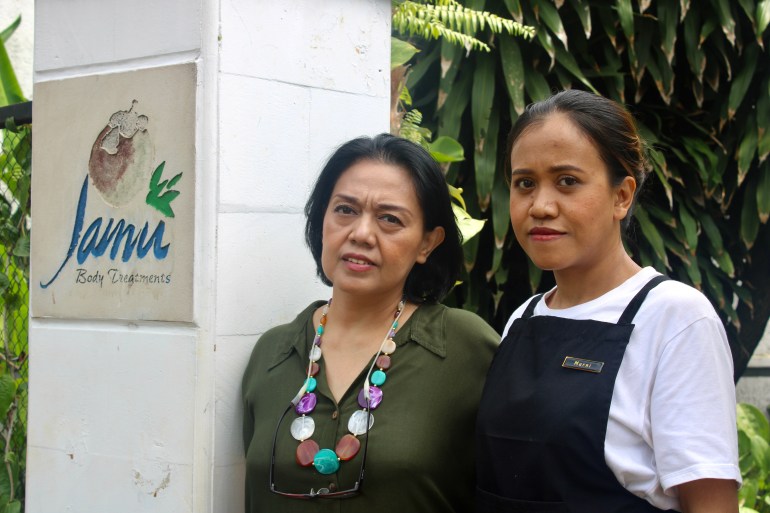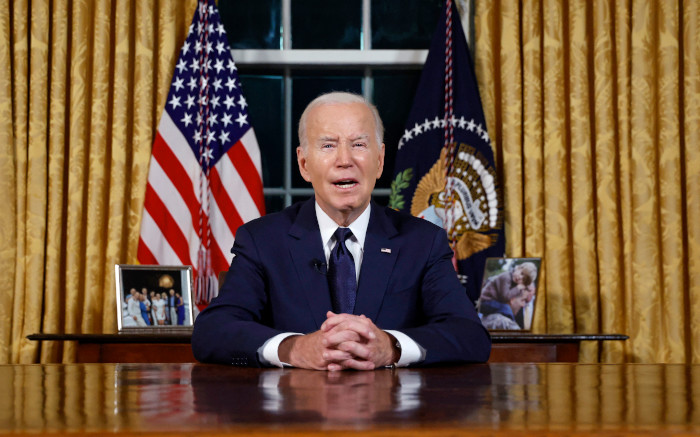Jakarta, Indonesia – After surviving COVID-19 on a meager salary, spa therapist Murniyati thought the worst was over.
But after the Indonesian government announced a drastic increase in taxes on entertainment services, she fears the salon where she works could be forced to close, leaving her jobless.
“My husband is just a taxi driver, so our total income is low. Our life, my life, depends on him and me,” she told Al Jazeera.
Murniyati is just one of the countless workers across Indonesia who could be affected by plans to apply a tax rate of 40 to 75 percent to entertainment services such as spas, bars, nightclubs and karaoke joints.
The proposed increase has sparked fierce backlash from businesses, including a legal challenge from spa owners in Bali.
Hariyadi Sukamdani, chairman of the Indonesian Hotel and Restaurant Association, said in a news conference last month that the changes would lead to job losses in an “industry that absorbs a significant amount of labor and does not require higher education, making it essential.” “the general population”.
Given the setback, the government said it would postpone the increase pending an assessment.
“We will assess the impacts together [of a higher entertainment tax] particularly for small business owners,” Maritime Affairs and Investment Minister Luhut Binsar said last month.

Still, Sofie Sulaiman, Murniyati’s manager at Jamu Body Treatments in Jakarta, is angry.
The spa provides jobs for many women, all of whom come from less affluent backgrounds. Many of them are widows and single mothers and most have been working at the spa for more than 20 years.
Sulaiman said her company had to bear the cost of the tax increase as it was too high to pass on to customers.
“Our market is teachers. It’s not business people, not tourists, not honeymooners who spend money while traveling. They are just teachers, they are just housewives,” Sulaiman told Al Jazeera.
Sulaiman said it would be impossible to make profits under the new tax system.
“We will sacrifice ourselves,” Sulaiman said, adding that she may have to close. “There’s nothing left after this.”
Revenue and Incentives
Bhima Yudhistira, an economist with the Center of Economic and Law Studies, said the tax increase could boost local governments’ revenues and give communities more autonomy, but the lack of consultation had divided officials.
“Some local governments that have huge tourism centers like Bali do not see this as revenue potential, but as a new tax burden post-COVID-19,” Yudhistira told Al Jazeera. “They will lose out because the number of tourists will decline and businesses will be affected.”
According to the National Statistics Office, COVID-19 has had a devastating impact on Indonesian businesses and workers: 2.67 million jobs were lost in 2020 and more than 30 million micro, small and medium enterprises (MSMEs) were forced to close during the pandemic.

Under the planned tax reform, the tax rate will be set by each local government, which is why November’s local elections are particularly important, said Yudhistira, who is skeptical about the government’s promise to offer relief and incentives to affected companies.
He believes companies can “cherry pick” depending on their political connections.
“We see that a lot of the local government incentives didn’t work well before…The industry or business owners who have strong connections to the local government leaders, the governors, have incentives.”
Indonesia has made a name for itself as an affordable destination, but some government officials have expressed hope that higher costs will discourage budget travelers in favor of big-spending tourists.
Gabby Walters, associate professor of tourism and economics at the University of Queensland, said such an approach would be a mistake.
More than a million Australians visited Bali last year, most of them looking for a cheap, fun holiday. They accounted for a quarter of all tourist arrivals and, according to official statistics, made up the largest group of visitors.
“[Australian] Bali tourists want alcohol, they want to party, so there is a rise in beach clubs and nightclubs and that is not what the high-income tourists are looking for,” Walters told Al Jazeera. “The way the tourism industry in Bali is structured is designed to promote and serve this market.”
It’s a market that could be deterred by higher prices at a time when tourism numbers are just over half of pre-pandemic levels, Walters said.
“If buying a drink at a bar, going to a nightclub or getting a massage increases by 40 to 75 percent, then people will definitely look elsewhere,” Walters said, noting that this is also the case with other destinations the region is the case I have reduced taxes.
Thailand cut a corresponding tax to five percent to attract tourists and saw a boom in arrivals. More than 28 million tourists visited the country last year, while Indonesia attracted just over nine million.
Sulaiman isn’t sure about the future of her spa, but she knows it’s possible to close the store and put her employees out of work.
She, like many others in the industry, is confused by the lack of advice.
“I don’t think there is a tax increase like this in any other country,” she said. “They never invited us to a discussion.”
Yudhistira said the tax revisions had come too quickly and those most affected had been left out of the discussion. He believes there are other ways to increase local government revenue without hurting the entertainment industry.
“The burden on the entertainment industry is high, the number of workers laid off… Instead of increasing the entertainment tax, they should increase the other local government taxes,” he said.

With the outcome of the government’s tax plans unclear, legal appeals pending and local elections looming, the future of the entertainment industry is uncertain.
For workers like Murniyati, so does their livelihood.
“Our lives depend on our work. We are worried,” she said.






Recent Comments